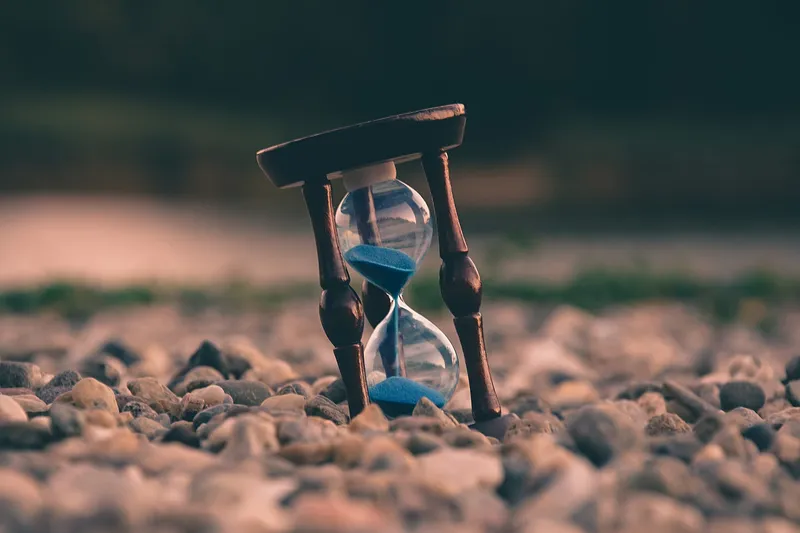Death Anxiety & Change in Life
Some people believe that all anxiety is ultimately about death. What does that even mean?!
24 Mar 2020

During my regular comedy talk about anxiety there’s an important moment: the first time I mention my experience of suicidality.
A hush usually falls on the room, in sharp contrast to the earlier laughter.
After a few seconds, I puncture the tension with a simple acknowledgement: “Cheery, this bit, isn’t it?! A real comedy crowd-pleaser.”
It’s not an especially funny gag, but you can always feel the tension immediately release around the room. This only works because death is such a taboo.
Some people believe that all anxiety is ultimately about death. Whatever we’re worried about, it’s because deep down, we’re afraid of dying. Our internal lives are incredibly complex, so it’s hard to say for sure how true this is. But it certainly could be a helpful angle to consider.
In some cases, the link is obvious. You don’t have to squint hard to see the link between, say, health anxiety and death. Meanwhile, social anxiety could be anxiety about our acceptance into the tribe—if we’re ejected, we lose our safety net against starvation and exposure.
Some existential therapists claim that we can reduce the impact of seemingly unrelated problems by facing directly against death anxiety. I wonder how many struggles common to multipods could be illuminated by considering the role death plays in shaping our lives.
…cheery, this bit, isn’t it?
We Live Many Lives
I love this comic by Saturday Morning Breakfast Cereal. Let me share the dialogue from just the first two panels:
“HERE IS SOMETHING TRUE: ONE DAY YOU WILL BE DEAD.”
“HERE IS SOMETHING FALSE: YOU ONLY LIVE ONCE.”
The central idea is that we can regularly reinvent ourselves throughout our lives. The comic creator claims it takes seven years to master something, which allows us to ‘regenerate’ and live new lives as writers, painters, scientists, architects… whatever we like, as often as we like.
Of course, real life tends to be more messy, mastery of a skill may not always be the goal, and there are more constraints than just time available—but this is an incredibly attractive idea.
But perhaps we neglect to think about the flip side: by definition, each regeneration is not only a new birth… it’s also a death.
Regenerating a new ‘life’ means the end of my current self.
And these (metaphorical) deaths have many potential consequences. Perhaps we’ll experience sadness at the loss of our previous self, and this tempers our excitement for whatever’s new: “this new computer programming course is sure fun… but I miss the way I interacted with people in my old job.”
We might mourn that taking any particular path means not taking all others. Or perhaps we had hopes for the activity we’re leaving behind which were never quite realised.
One common manifestation of death anxiety is resisting change. Since death is the biggest change of all, it’s tempting to subconsciously fool ourselves into believing that if nothing ever changes, we’ll always be safe.
For example, sometimes tiny changes put me on edge and I overreact WAY more than necessary, even when I know the change will be fine—or even good.
Are those reactions really about something deeper? And if they were, should I start putting myself into death-defying situations so I can handle my everyday anxieties better?!
How to Face Down Death In Seven Lots of Easy Unknown Steps
Let’s be real. I don’t have a simple solution to successfully getting out of bed in the morning, let alone death.
But merely acknowledging the issue can be an important first step. It’s such a taboo that we rarely talk about it, and most of us avoid dwelling on it ourselves.
In my experience, there’s a perverse comfort in considering the very worst that could happen. Suddenly, changes in my circumstances don’t seem so major after all.
Some traditions recommend taking time regularly to consciously meditate on death. Like anything, this isn’t a cure-all, but it may help to live a happier, more mindful life. Personally, I’ve tried meditating on death, and while I can’t be sure to what extent consciously facing down death helped to reduce my anxiety, I do believe it played a part.
That said, this may not be universal. Each of us has a unique relationship with death, and exploring our feelings about it could be arduous, or even impossible. (Plus, for obvious reasons, there are times in our lives when it’s too much for anyone to take on.)
But, when we’re feeling up to it, I think there may be value in considering the hidden ways that death plays a part in our day-to-day emotions.
Next time you’re experiencing change, perhaps taking a moment to mourn your old self will help you live your new life even more fully.
This article was originally written for Puttylike

Neil Hughes is the author of Walking on Custard & the Meaning of Life, a comical and useful guide to life with anxiety, and The Shop Before Life, a tale about a magical shop which sells human personality traits.
Along with writing more books, he spends his time on standup comedy, speaking about mental health, computer programming, public speaking and everything from music to video games to languages. He struggles to answer the question "so, what do you do?" and is worried that the honest answer is probably "procrastinate."
He would like it if you said hello.